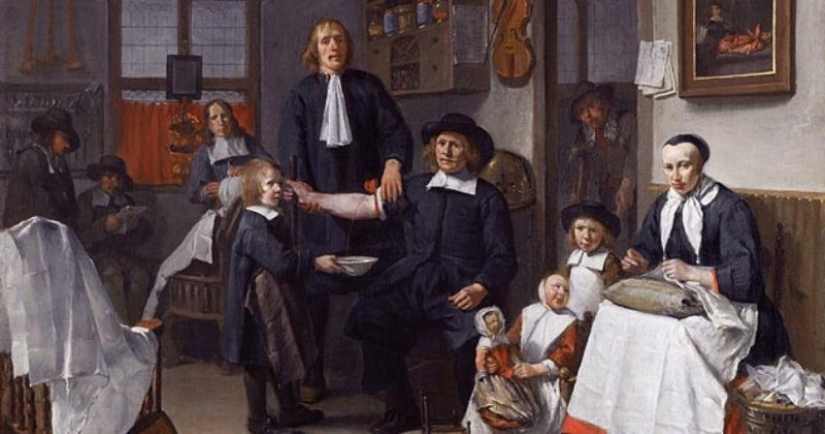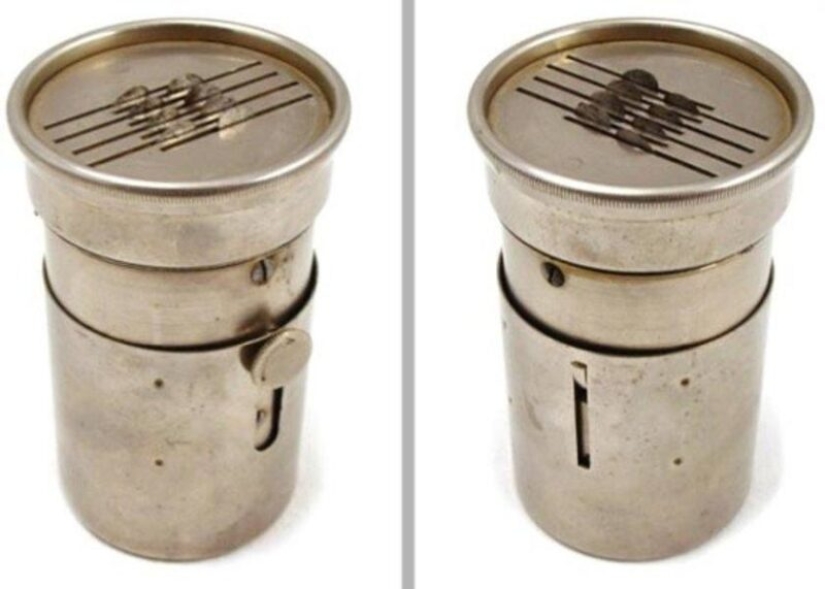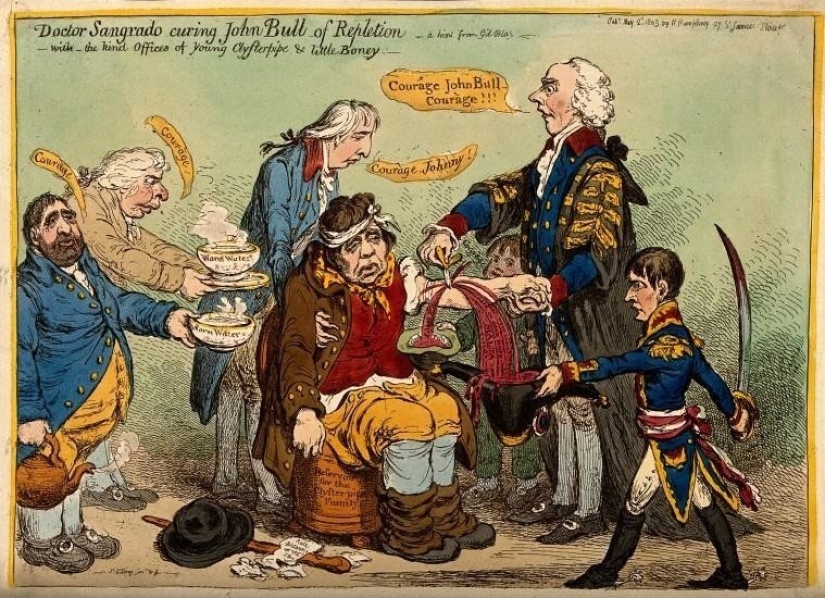"Blood opening": what is the essence of bloodletting treatment, which often had the opposite effect
Categories: Health and Medicine | History
By Pictolic https://pictolic.com/article/blood-opening-what-is-the-essence-of-bloodletting-treatment-which-often-had-the-opposite-effect.htmlNowadays, a person has access to modern medical technologies and methods of treatment, and often even has the opportunity to choose from several options. But some one and a half hundred years ago, bloodletting reigned in the world, with the help of which absolutely everything was treated. How did this method of healing appear and why was it popular for many centuries?

For the creation of the concept of bloodletting, humanity should thank the father of modern medicine, Hippocrates. It was this ancient scientist who assured that the basis of human health is the balance of four biological fluids: blood, yellow and black bile and phlegm (mucus). If the harmonious ratio of the "vital juices" was violated, a person became ill. Both a shortage and an overabundance of liquids were considered dangerous.
Hippocrates
A special role in this balance was given to blood, since it was endowed with the ability to balance the rest of the juices of the human body. According to the doctors, bloodletting was supposed to solve two main problems — to get rid of excess blood and promote its renewal. To perform the procedure, leeches were used or one of the veins of the arm or leg was opened.

Medieval lancets for bloodletting
In this way, they were treated not only for "full blood", that is, hypertension, but also for colds, fever, back and abdominal pain, poisoning and even gangrene. In Europe at the beginning of the 19th century, treatment with leeches was so popular that these inhabitants of the reservoir were almost completely exterminated and they were imported to some countries from Russia and even Asia.
The fact that bloodletting is a meaningless procedure, and sometimes dangerous, people began to think only in the second half of the 19th century. It was noticed that the loss of blood does not contribute to its renewal, but weakens the patient's body, which sometimes leads to death.

This is how the classic of literature N. V. Gogol died. The writer, weakened by illness and refusing food, was prescribed bloodletting, hot baths and drenching, which brought him to the grave. It must be said that Nikolai Vasilyevich's health was not the weakest — in 1839 he was able to recover from encephalitis, and in 1852 he suffered cholera. But in 1842, the aesculapians did not leave a single chance for the 43-year-old, bedridden writer, draining blood from him and dousing him with water.
The "artificial leech" tool. Mid-19th century
But if in the cities bloodletting gradually ceased to be practiced in the last decades of the 19th century, then in the villages it was used at the beginning of the 20th century. The method was completely abandoned only when the mass popularization of cell theory began and the Hippocratic theory of "vital juices" was recognized as untenable and even harmful.

The scarifier. The beginning of the 20th century. It was applied to the body, the blades on the springs cut through the skin, and the blood was collected in a glass
But bloodletting has not sunk into oblivion — this would be strange after centuries of an undivided medical monopoly. Today, it exists as an alternative method of treatment and can have different names. Bloodletting is best known as a "hijama session" - a method of pumping blood with special pumps or cans through incisions on the back, head, arms and other parts of the body.
Another ingenious device for bloodletting, created in the second half of the 19th century
Clinics offering this method promise to replace "dirty" blood with healthy, fresh blood and get rid of problems with the skin, joints, stomach and varicose veins. Sometimes "hijama adherents" go very far and even treat infertility with bloodletting. Of course, this is pumping out not only blood, but also money, because modern medicine does not have a single confirmed fact of curing a person in this way from anything.

In traditional medicine, bloodletting is considered an anachronism, which also has many contraindications. There are conditions in which such manipulation is strictly contraindicated, since its implementation can threaten not only the health, but also the life of the patient. Among them, it is worth noting oncological and infectious diseases, low blood pressure and heart problems.
Today, bloodletting looks like this
Another important reason to refuse bloodletting is the risk of catching HIV, hepatitis or some other dangerous infection. "Specialists" who practice hijama do not always disinfect their instruments after each session. Therefore, let bloodletting remain a part of the history of medicine and give way to more advanced and proven effective methods of healing.
But there is an even more dangerous method of treatment, which, oddly enough, was used even in the second half of the 20th century. Lobotomy has claimed thousands of lives over several decades and made hundreds of thousands of people unhappy.
Keywords: Blood | Treatment | Doctors | Methods | Incision | Tradition
Post News ArticleRecent articles

It's high time to admit that this whole hipster idea has gone too far. The concept has become so popular that even restaurants have ...

There is a perception that people only use 10% of their brain potential. But the heroes of our review, apparently, found a way to ...
Related articles

We all know that allergies can be cats, dogs, chocolate, citrus fruits and pollen. But things that can cause a dangerous reaction, ...

Relatively recently, the world began to learn about gender diversity. Started talking about a lot of things that have never been ...

To eat a bowl of chicken soup when you have a fever and runny nose — a great idea, but just as some foods help to get better ...

New Year's is a time to surprise and delight loved ones not only with gifts but also with a unique presentation of the holiday ...